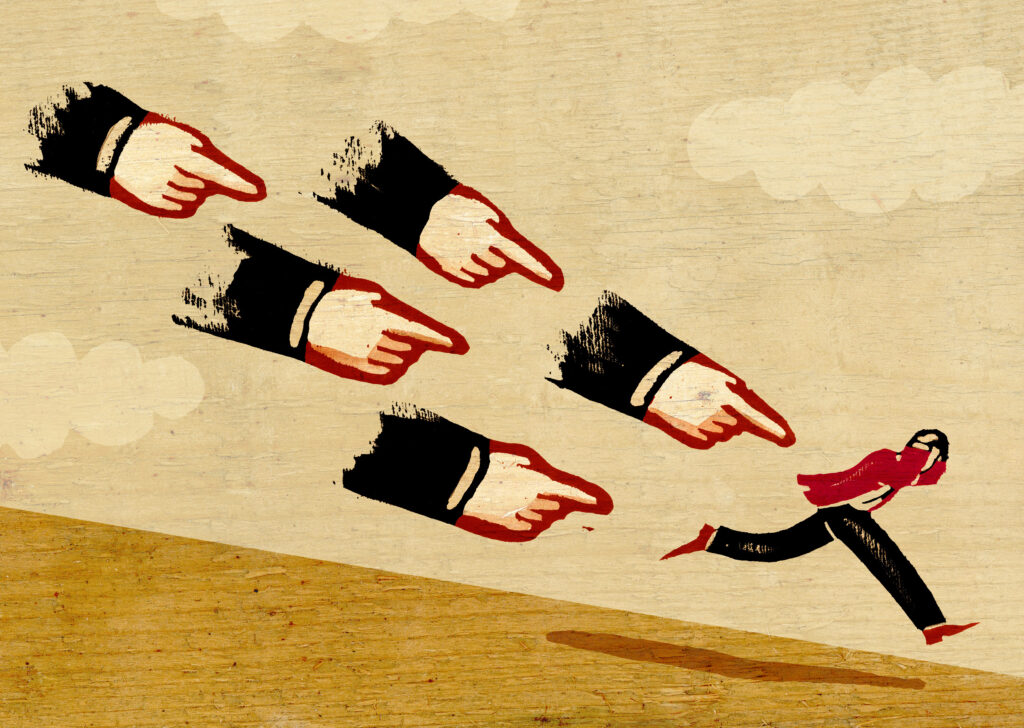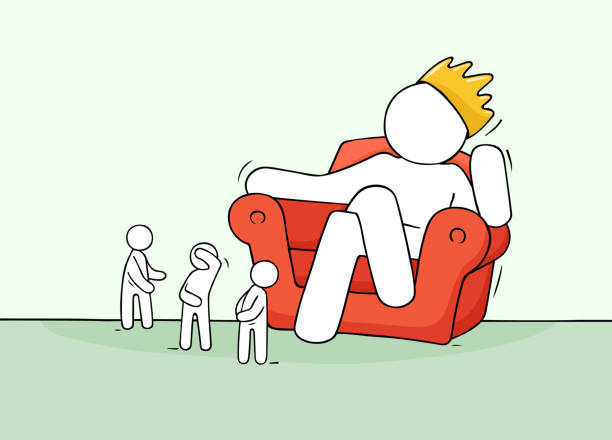Warning Signs of a Self-Absorbed Person

What do you picture when you think about a self-absorbed person? Do you see a snobby, snooty, stuck-up person, who holds their head up high and walks with their nose in the air? Ah yes, the classic mean girl or mean guy. But the thing is, most self-absorbed people display their narcissistic traits in ways that are harder to identify- often exploiting the innocent for their own selfish desires to be met. It is important to tell whether or not you are around a self-absorbed person so that you can protect your own personal relationships and goals.
Now it is important to note that narcissism is a trait, but in more severe cases, can be diagnosed as Narcissistic Personality Disorder. However, not every narcissist has to have NPD, as narcissism is a spectrum.
That being said, here are the warning signs of a narcissist, or self-absorbed person.

1. They Can Be Arrogant
Arrogance is one of the most notable signs of a self-absorbed person. A narcissist is egotistical, they are self-centered, their mind works in a way which makes them believe that the world revolves around them. This behavior can come across as conceited, pretentious, or boastful at times. They often exaggerate their achievements, put on a grandiose front, and try to make themselves seem bigger than they are. Now don’t get me wrong. Having a healthy amount of confidence and high self-esteem is great, but overdoing it can only harm you. The Mayo Clinic states that narcissists have “an inflated sense of their own importance”, which is what causes them to have a distorted sense of entitlement. If they aren’t envying someone at the moment, they like to believe that others are envious of them. Such self-absorbed people often also unhealthily fantasize about getting a hold of unlimited brilliance, external beauty, power, success, perfection, praise, and admiration.

2. They Don’t Take Responsibility for Their Wrong-doings
A narcissistic person would typically not be one to take responsibility for their actions. Well, at least not the bad ones. They feel insecure about making mistakes, and would rather put the blame on something or someone else, rather than maturely owning up to their actions and taking them as learning experiences. This also puts them in constant defense mode. They are obsessive about their image, and outward appearance, which is a reflection of their actions, so they prefer to play the blame game. But if you turn the situation around, they are also on the lookout to highlight others’ wrong-doings, flaws, faults, and mistakes. This gives them a heightened sense of power, allowing them to fuel the feeling of being above everyone else.

3. It’s Their Way or the Highway
Narcissists are extremely opinionated, in the sense that they are closed to being challenged with different perspectives, or ideas. What they say goes, and what they say must also be agreed upon. Narcissists feel threatened when you challenge their ideas and opinions. They see discussions as debates, and debates as a battle which they must “win” in order to prove their point. Self-centered people often view the world in black and white, or this or that, or one or the other, and have trouble accepting and understanding concepts through a wide spectrum of possibilities. They often view relationships of any kind as a tool to satisfy their selfish desires, and can’t take no for an answer. Banner Health adds that self-absorbed people “can be aggressive, tolerate distress poorly, struggle to regulate their emotions, and have fragile egos”. This is also why you might also notice that they tend to struggle to keep people close and maintain mutually respectful and healthy relationships.

4. They Feel Entitled to Favorable Treatment
A typical self-absorbed person’s magnified superiority complex makes them believe that they are entitled to favorable treatment from others. They believe that they are “special”, and only show respect to those who are higher in status to them or can offer something in return for basic decency. To them, only equally “special” people are worthy of associating and interacting with them. Narcissists are also known to display manipulative, monopolizing, exploitative, imposing, and toxic behavior to get what they want. Narcissists feed off of dominating over others. According to Shirin Peykar, licensed marriage and family therapist, Narcissists use other people — people who are typically highly empathic — to supply their sense of self-worth, and make them feel powerful. But because of their low self-esteem, their egos can be slighted very easily”. Self-absorbed people don’t see the big picture due to their narrow-minded, self-centered thinking. They are only concerned with what they can do in their power for their own wants and needs, and insist on having the best of everything.

5. They Lack Empathy and Understanding
Narcissists tend to lack real empathy. As Casey Imafidon, a writer and specialist in motivation and personal growth puts it, “since their display of sympathy or compassion is usually conditional, it is difficult for them to understand the depth of true empathy or what this concept means.” So when self-centered people do show signs of empathy, it would be wise to stay on guard as they most likely have ill intent behind their seemingly good actions. The inability to empathize or sympathize with others is often one of the main reasons why narcissists are unable to hold onto a long-lasting, worthy relationship. Empathy is what keeps us close as humans, it’s what allows us to look after each other and care for each other. Not having this important trait can make or break your relationships with the important people in your life.
6. They Are Close to Criticism
One of the hallmark characteristics of a narcissist is their inability to accept constructive criticism. Due to their inner insecurities and low-self esteem, narcissists view any form of criticism or feedback as an attack on their character. This is also the same reason why they may be harsh with criticism, projection, and blame towards others. Their goal is to bring everyone else down, while appearing to be above a pedestal when it comes to their own personal image. Their difficulty with regulating emotions can significantly impact their behavior towards this, causing them to feel stressed, belittled, and insecure. And this unfortunately only leads to them going back to putting on an ever more pretentious facade, creating a vicious cycle that continues.

If you or anyone you know can relate to these signs, or if you feel like your/their safety is at risk due to such behavior, please reach out for professional help. Working through feelings of insecurity or inadequacy can seem challenging, understandably so, but they can ultimately help you make it out as a stronger person. Good luck with your journey!

References
- Brennan, D., MD (Ed.). (2020, December 2). Narcissism: Symptoms and Signs. WebMD. Retrieved July 8, 2021, from https://www.webmd.com/mental-health/narcissism-symptoms-signs
- Imafidon, C. (n.d.). 15 Signs Of Self-Absorbed People. Lifehack. Retrieved July 8, 2021, from https://www.lifehack.org/325656/15-signs-self-absorbed-people-2
- Kassel, G. (2019, January 30). 11 Signs You’re Dating a Narcissist — and How to Get Out (T. J. Legg, Ph.D., CRNP, Ed.). https://www.healthline.com/health/mental-health/am-i-dating-a-narcissist. Retrieved July 8, 2021, from https://www.healthline.com/health/mental-health/am-i-dating-a-narcissist
- Narcissistic personality disorder. (2017, November 18). Mayo Clinic. Retrieved July 8, 2021, from https://www.mayoclinic.org/diseases-conditions/narcissistic-personality-disorder/symptoms-causes/syc-20366662
- Thurrott, S. (2021, March 14). How to Spot the Narcissists in Your Life. Banner Health. Retrieved July 8, 2021, from https://www.bannerhealth.com/healthcareblog/teach-me/how-to-spot-the-narcissists-in-your-life



Responses